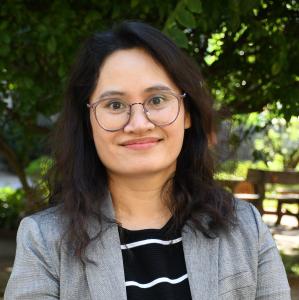Around 150 national scientists, experts and representatives of diplomatic institutions took part in this hybrid event. They discussed the topic "Promoting Synergy among Mechanisms for Sustainable Growth in the Mekong Sub-Region". The topic is of particular importance as the Mekong Sub-Region in Southeast Asia is of special relevance regarding geostrategic goals worldwide. Many countries around the world are trying to establish a presence in the region through investments and to realize their own interests. The Mekong sub-region is also known to be one of the regions most affected by climate change worldwide. The effects of climate change are already evident and will become more so in the future, so the region needs a strategic response.
For this reason, the event comprised three sessions. It began with a session that placed the importance of the Mekong sub-region in a changing regional and global context. This was followed by the national perspectives of the CLMTV countries. They presented the opportunities and challenges of the respective Mekong cooperation mechanisms. Finally, the future perspectives of the Mekong River and its cooperation mechanisms in the sub-region were discussed.
The event was opened by two speeches from Dr. Pham Lan Dung, Acting President of the DAV and Mr. Florian Feyerabend, Resident Representative of KAS Vietnam. In these speeches it became clear that the Mekong River is an important lifeline for more than 60 million people and plays a crucial role in supporting agriculture, fisheries, hydropower, and transportation. The region is also of great importance globally, as it is home to around a quarter of the world's freshwater fish stocks and contributes 15% of global rice production.
In the first session moderated by Dr. Vu Le Thai Hoang, Director General, IFPSS, Diplomatic Academy of Vietnam, the panellists highlighted the trends facing the Mekong sub-region in the rapidly changing global and regional context. The panellists outlined possible strategies for action on how the Mekong sub-region can respond to these trends in the future. However, the central role of the Mekong sub-region for Asia and the interests of countries around the world investing in this region were particularly emphasized. It also shed light on how successful and targeted the investments are.
The second session of the event provided a detailed look at the individual CLMTV countries. The aim was to have an open exchange about the interests, problems, and opportunities of the countries through the individual perspectives. The different countries should therefore gain a unique insight and discover common interests, but at the same time shed light on the differences. The latter can also fuel cooperation if they are precisely analysed and perceived by the other countries. In this way, they can also become an opportunity for others. The CLMTV countries, Cambodia, Laos, Myanmar, Thailand, and Vietnam have revealed the individual economic added values of the Mekong River and explained which countries are active through local investment projects and how these are structured. Current ongoing agreements with countries worldwide were discussed, so that it became clear which ones were rated as successful for the region. It became particularly clear in the session that the countries would like to work more closely together.
The final third session dealt with the prospects of the Mekong River and the sub-region's cooperation mechanisms. In this session, experts presented cooperation mechanisms and made recommendations. In particular, the experts discussed the need to take a close look at the role played by the Mekong River in the countries, especially in terms of scale. The commitment of the individual countries must be adapted accordingly. It was also highlighted that the Mekong sub-region must be aware that it is increasingly gaining geopolitical value. A unified approach would send a strong signal worldwide and would help the region to lend weight to its interests. The discussion also touched on environmental policy issues. A strategy for action on water security, climate change, food security and people live hand are the basic prerequisites for long-term sustainable cooperation between the CLMTV countries. They also make it clear who has the upper hand in the region.



